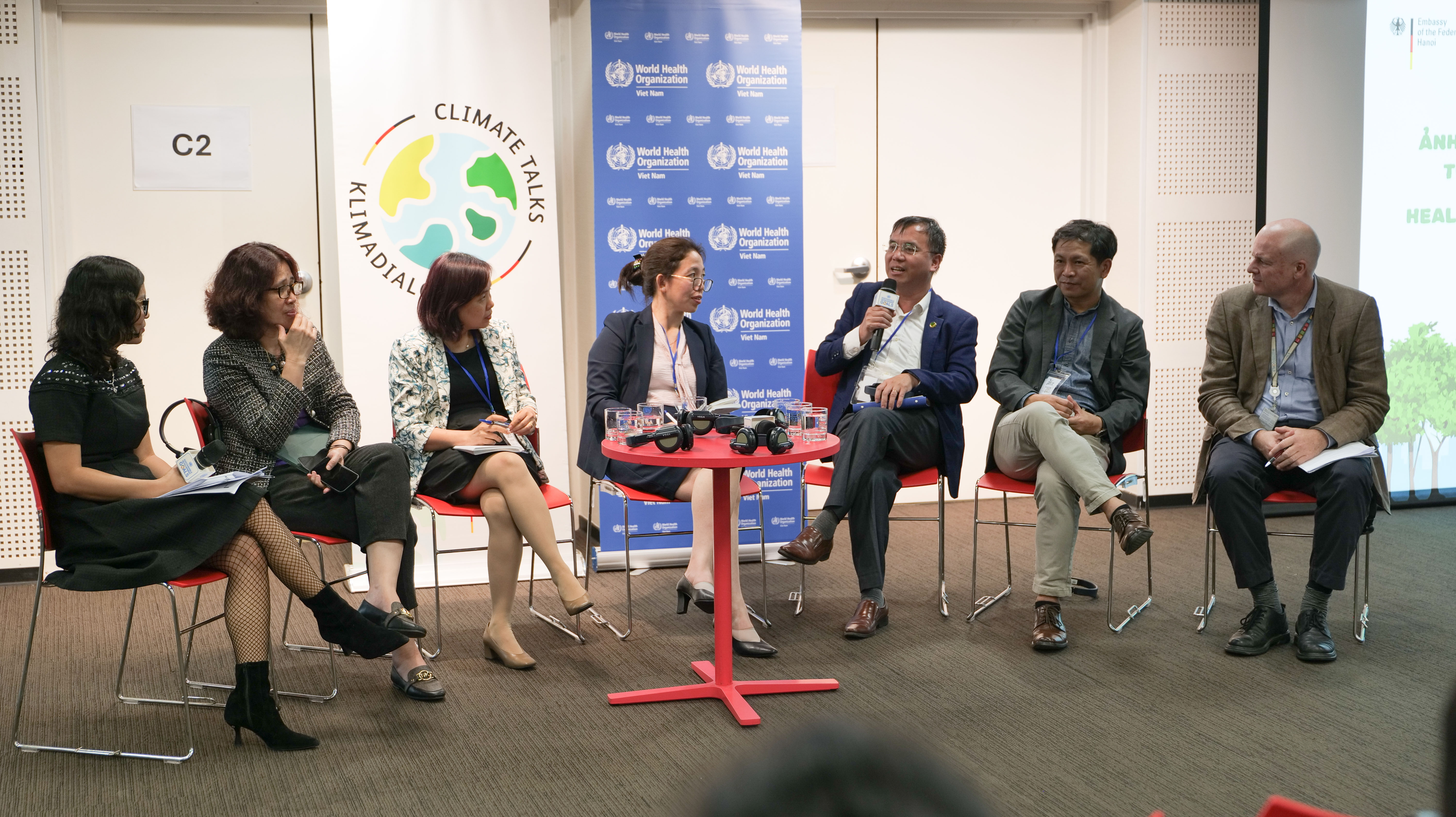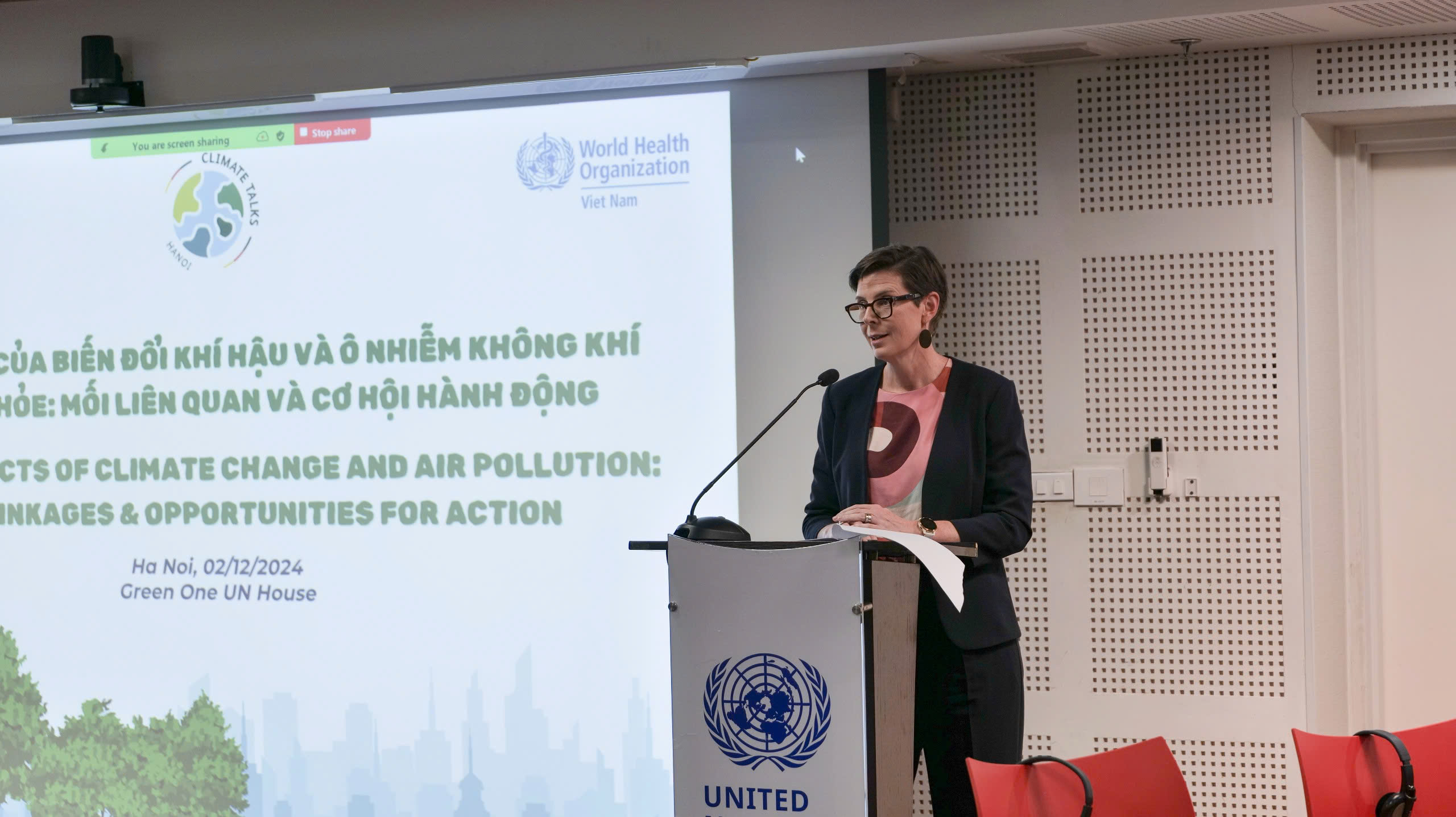Climate change and air pollution are harming the health of people in Viet Nam, participants heard at a panel discussion in Ha Noi hosted by the Embassy of the Federal Republic of Germany and the World Health Organization (WHO) today.

These challenges are connected – as are the solutions. Addressing climate change and air pollution offer opportunities that will benefit not only the environment, but also health and the economy.
WHO Representative in Viet Nam Dr Angela Pratt urged policymakers, private sector partners, community-based organizations, the scientific community, the media and the public to raise our collective level of ambition, in support of the Government’s strong commitments to both protecting the environment and prioritising people’s health.

“Climate change and air pollution threaten the essential ingredients of good health – clean air, safe drinking water, nutritious food supply and safe shelter. They have the potential to undermine decades of progress in health globally and here in Viet Nam – unless we act together.
“Climate change and air pollution are also connected. Fossil fuels are a major source of outdoor air pollution, and are also sources of the carbon emissions which are accelerating climate change. And climate change can trap pollutants in the air we breathe.
“The good news is that addressing climate change and air pollution effectively can bring a triple win – for health, for the environment, and for sustainable economic and social development,” Dr Pratt said.

Deputy Ambassador of the Federal Republic of Germany Mr Simon Kreye said, “Climate change and air pollution are global challenges that no country can solve alone. As part of its broader support for energy transition and climate protection, Germany has been organizing Climate Talks to engage with the people of Viet Nam.”
Under the strong leadership of the Prime Minister, the Government of Viet Nam has set ambitious targets for action on climate change, which will have significant benefits for addressing air pollution.
As the National Action Plan for Air Quality Management for 2021-2025 comes to an end and decision-makers consider how to shape the next plan, there is an opportunity for accelerated action to improve air quality, which will also benefit the climate.
The next iteration of Viet Nam’s Nationally Determined Contribution (NDC) under the United Nations Framework Convention on Climate Change (UNFCCC), which is expected to be finalized by late 2025, will also be an opportunity to outline how Viet Nam will meet its commitments to reducing greenhouse gas emissions.
